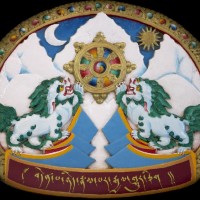His Holiness the Dalai Lama has ratified the amendment to the charter of Tibetans delegating his administrative and political authorities to the democratically elected leaders of the Central Tibetan Administration.
By approving the amendment on 29 May 2011, His Holiness the Dalai Lama fully vests the Central Tibetan Administration and in particular its democratic leadership
The preamble in the charter enshrines “safeguarding the continuity of the Central Tibetan Administration as the legitimate governing body and representative of the whole Tibetan people, in whom the sovereignty resides.”
The administrative and political powers vested with His Holiness the Dalai Lama were devolved to the three organs of Tibetan democracy.
In his message to the Tibetan Parliament in March this year, His Holiness said he is devolving his political responsibility to the elected leadership in order to fully democratise the Tibetan polity.
“The essence of a democratic system is, in short, the assumption of political responsibility by elected leaders for the popular good. In order for our process of democratisation to be complete, the time has come for me to devolve my formal authority to such an elected leadership,” His Holiness said in his message.
“My intention to devolve political authority derives neither from a wish to shirk responsibility nor because I am disheartened. On the contrary, I wish to devolve authority solely for the benefit of the Tibetan people in the long run. It is extremely important that we ensure the continuity of our exile Tibetan administration and our struggle until the issue of Tibet has been successfully resolved,” he said in the message.
“It is necessary that we establish a sound system of governance while I remain able and healthy, in order that the exile Tibetan administration can become self-reliant rather than being dependent on the Dalai Lama. If we are able to implement such a system from this time onwards, I will still be able to help resolve problems if called upon to do so,” he said.
“As one among the six million Tibetans, bearing in mind that the Dalai Lamas have a special historic and karmic relationship with the Tibetan people, and as long as Tibetans place their trust and faith in me, I will continue to serve the cause of Tibet,” he said.

